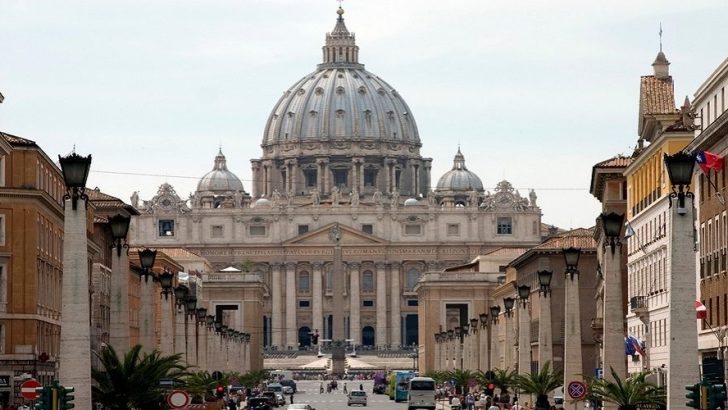“The commission has recognised its duty to create policies with global application, which send very clear messages about what must be done everywhere in the world. We have seen that it is capable of this”, writes Nuala O’Loan
Pope Francis established the Pontifical Commission for the Protection of Minors, because, he said,
“Many painful actions have caused a profound examination of conscience for the entire Church, leading us to request forgiveness from the victims and from our society for the harm that has been caused. This response to these actions is the firm beginning for initiatives of many different types, which are intended to repair the damage, to attain justice, and to prevent, by all means possible, the recurrence of similar incidents in the future.”
The commission has many advantages: it has a membership, lay and clerical, from Europe, North America, Africa, Oceania, Asia, and South America. It has among its members, former survivors, including our own Marie Collins, a former president of the Royal College of Psychiatrists, president of the British Medical Association and currently chair of the BMA Board of Science, a former Prime Minister of Poland, very senior canon lawyers and many others. It is well equipped in terms of its membership to do its job.
Committed
These very committed people are giving their time voluntarily as members to “propose initiatives for the purposes of promoting local responsibility in the particular Churches for the protection of all minors and vulnerable adults.” That is their remit.
However policy making is not easy, and it is even harder to implement once approved, especially in a complex multinational organisation such as the Church, working in hundreds of languages across the whole world. It requires in the first instance a comprehensive understanding of existing policy in the area, so that changes and proposals for new initiatives will work. It also tends to be very time consuming. Every word is critical, every proposal must be so articulated that it is capable of only one interpretation.
The members have no power to enquire into individual cases – there are other canon law processes to deal with individual complaints.
The commission’s duty is to make proposals to Pope Francis for policy development, and it is for him to approve or otherwise. It is then the responsibility of others to give effect to those proposals.
The commission can comment on the effectiveness of the work of those responsible for child protection arrangements, and ask questions of those responsible for running them. It may, under its statutes, “require an account of the effectiveness of work carried out by local churches, episcopal conferences, conferences of superiors of institutes of consecrated life and societies of apostolic life, as well as the dicastery of the Roman Curia competent in the matter.”
In creating this commission then the Pope has given it the power to call to account even those in the curia, and all others who are responsible for the protection of children in the Church across the world.
This should be a powerful body.
The commission has recognised its duty to create policies with global application, which send very clear messages about what must be done everywhere in the world.
We have seen that it is capable of this.
Following the recent controversy about comments reportedly made during the last training programme for new bishops by Msgr Tony Anatrella, that bishops had no obligation to report abuse charges to civil authorities, something he later clarified, the commission publicly stated that Catholic bishops have “a moral and ethical responsibility” to report suspected child abuse to civil authorities – to the police or social services or whatever arrangements exist in individual countries for dealing with allegations of child sexual abuse.
The commission has also “reiterated the members’ willingness to provide this material at courses offered in Rome, including to the annual training programme for new bishops and to the offices of the Roman Curia for their use in their own child protection efforts.” They have not been asked to participate in such training.
It is clear that such training is absolutely vital. Of course, priests who become bishops will have received extensive training during recent years in the context of their obligations when a case is reported to them, but bishops have a different function, and training in this area is undoubtedly necessary. That has been recognised and it would seem obvious to the average Catholic, that the commission with all its experience should contribute significantly to such training. It has not happened.
Recommendations
The commission has also made recommendations to the Pope about new procedures for examining complaints of abuse of office by bishops. The complaints, it is understood, will be first investigated by the congregations to which the bishops belong, and then will be judged by the Congregation for the Doctrine of the Faith, which already reviews all cases of clergy accused of abusing minors.
Those proposals were accepted by Pope Francis. It appears that nothing else has happened. There has been no further development in this most important area.
The commission itself has already participated in training programmes with bishops in the Philippines and in Costa Rica.
So the commission seems to be attempting to fulfil its mandate in very difficult circumstances. Three things are needed to enable an organisation like the commission to be effective: funding, support and proper access to and respect from those who are responsible for making and implementing Church policy.
Arrangements
Marie Collins is reported to have said recently that the current funding arrangements were inadequate. It has also been reported that the commission has even been told to consider raising their own funds to complete the work. As she stated, “If the Church is saying that this is its highest priority, then they must be able to fund it and fund it properly,” she said. “If you’re not properly funded, if you’re not properly resourced, then you can’t do the work that you need to do.”
Proper funding is the key to the ability of an organisation such as the commission to function. Many good initiatives have failed because they have been starved of the necessary funding.
The commission, meeting in plenary twice a year in Rome and in working groups, has very limited capacity for engaging with cardinals, bishops and the curia, yet it must be able to do so. There is no obvious sign of real engagement.
Its proposals, once accepted by the Pope must be implemented. This is such a profoundly important area of work that it is very disturbing to see no positive response publicly articulated by those responsible.
Perhaps the commission needs to exercise the powers in Article 1 Paragraph 5 of its statutes and “require an account of the effectiveness of work carried out by organisations” like the curia, and make its findings known to the Pope.


 Nuala O’Loan
Nuala O’Loan